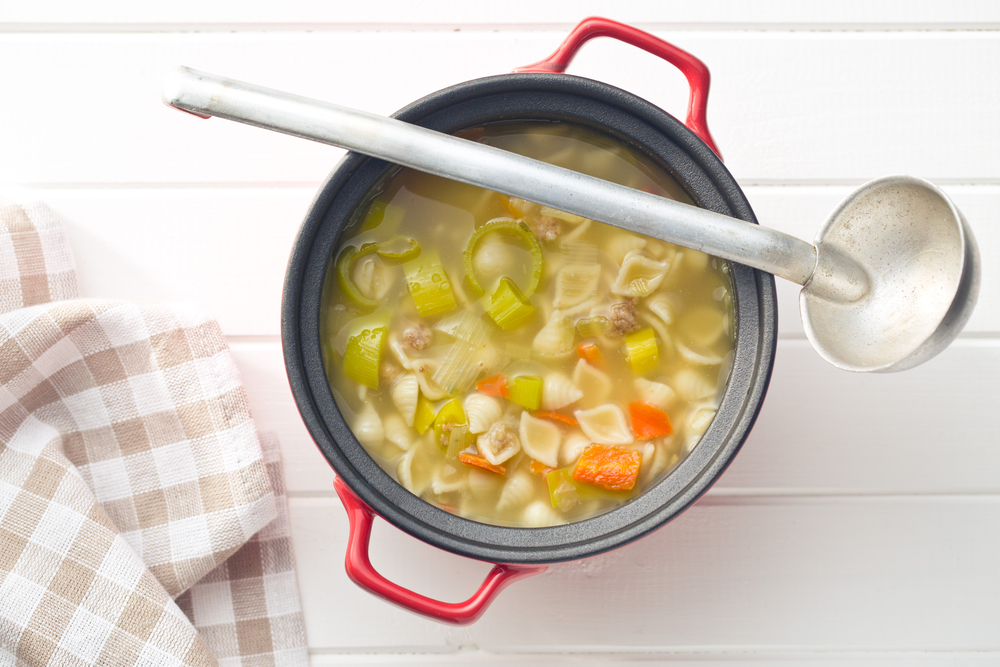
It was getting late and once again I was left with the usual dilemma; wanting to go to bed but having a pot of hot soup waiting for the fridge. They say a watched pot never boils, but in my case, it was the opposite. The watched pot just wasn’t cooling down. I finally ran out of patience, stuck it in the fridge and ran to bed.
How many of you just cringed? Everyone knows not to put hot food in the fridge.
But was I actually wrong? What’s the worst that can happen?
You don’t have to worry about overheating your fridge and causing the food to spoil. Your fridge can handle hot temperatures (It’s stronger than it looks.) The issue is with your food sitting at the wrong temperature for too long. Things can get dangerous. Bacteria tend to grow most rapidly in the range of temperatures between 40 and 140 degrees Fahrenheit.
So the real question is: Will your food cool down quickly enough to reach a safe temperature in the fridge?
Below are some TIPS to help your food cool faster and stay fresher in the fridge.
- Divide the food into a bunch of small containers to speed up the cooling process.
I know this sounds inconvenient. Who wants to wash extra dishes? But if you will have to waste time waiting for your huge pot to cool, the few minutes of washing dishes is worth your while. Using wide, shallow containers will be the most efficient. - Stick it in an ice-water bath.
This sounds like too much effort, but it works. Your hot food will cool much faster, enabling you to get on with your life. Fill a large bowl with cold water and ice cubes and place the containers of food inside. - Cooked food should only sit out for around two hours.
After that, you should transfer it to its new home (aka the fridge). Don’t let it sit on the counter for longer than that or the bacteria can grow. - Once you refrigerate it, make sure it’s covered.
Sounds obvious, but make sure the lid to the container is secure or the foil is wrapped tightly. You don’t want fridge-flavored soup, do you? And besides, spills can be easily prevented if things were covered properly in the first place.
Okay so my food is finally cooled, and refrigerated, I can forget about it now. Right?
Not exactly. Food can’t last in the fridge forever. (That’s what freezers are for.)
The food should only be placed in the fridge if you’ll be eating it within the next few days. If it won’t be eaten within the next 3-4 days, then into the freezer it goes. Each food has a different shelf life, as I’m sure you’re aware. Here’s a sampling of the fridge life of some items:
- Raw ground meats and stew meat and poultry and fish: 1-2 days
- Cooked meat, poultry, fish, pizza: 3-4 days
- Raw meat roasts, steak, opened deli meat: 5 days
- Hot dogs, yogurts and other processed foods have a much longer refrigeration life. They can last more than a week.
When in doubt, throw it out. That leftover slice of pie that’s looking suspiciously green, even if it’s only two days old, can be dumped. Trust your instincts.
You should constantly check your fridge so you can catch those leftovers before their time is up. It’s such a shame to throw out food that was perfectly fine the day before.
For those leftovers that you quickly have to get rid of, Kosher.com has recipes you can use to turn them into a fresh, delicious dish.

